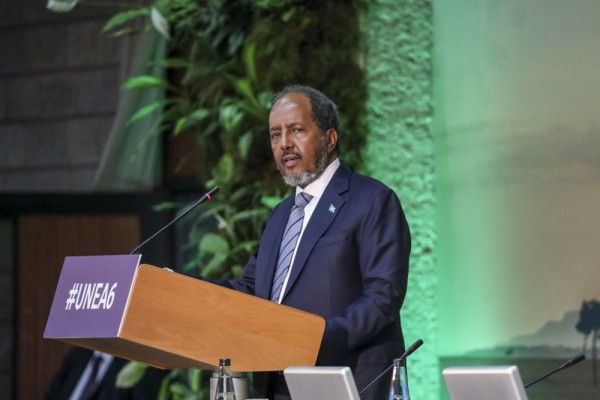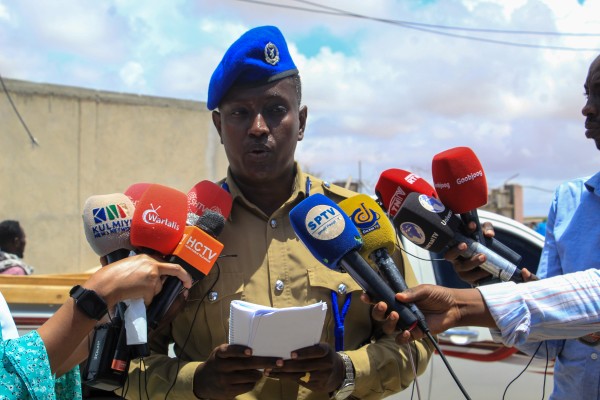A total of 21 journalists were detained in the Somaliland region of Somalia on 14 January and later released, according to the National Union of Somali Journalists (NUSOJ). The police targeted journalists and a television broadcaster without a warrant. Authorities accused the journalists and the private television channel Horn Cable TV of supporting and promoting anti-government sentiment.
Police entered the headquarters of Horn Cable TV in Hargeisa and forced the channel to cease transmission. Mohamed Abdi Sheik, the East Africa director of Horn Cable TV, was arrested and later released. Abdullahai Wayab, the editor-in-chief of the broadcaster, said seven armoured police vehicles and nearly a hundred police soldiers were involved in the operation.
There has been a tense relationship between the government and Horn Cable TV. According to its journalists, Horn Cable TV has been unpopular with the authorities because it has broadcast reports on meetings between tribal politicians and elders in Sool, in which they declared Sool to be independent. Somaliland President Ahmed Mahamood Silanyo even referred to the TV station as a “nation destructor” in a speech in parliament. He blamed the TV broadcaster for spreading dissent and promoting division of Somaliland.
On Sunday 15 January, workers of Horn Cable TV staged a demonstration outside the presidential palace; however, it was brutally repressed. Protestors were beaten and eight journalists, all of whom work for Horn Cable TV, were arrested. Nimca Abshir, a journalist who was detained, said, “When we were caught by the police this morning, we were beaten and a fellow journalist was seriously beaten until blood came out from his mouth.” Moreover, Farhan Haji Ali Ahmed, the owner of Horn Cable TV has been called to the Somali Presidency for questioning.
Meanwhile, authorities identified journalists from different organisations who participated in the protest and they were also detained without charge, including journalists from Jamhuuriya newspaper, Waaheen newspaper, Geeska Africa newspaper, Bulsho TV and Sahan newspaper, bringing the total number of detained journalists to 21. Interior Minister Mohamed Dur Arale declared that the license for Horn Cable TV to broadcast had been withdrawn and that its activities were therefore illegal.
On 16 January, the 21 journalists who were arrested as a result of the protests on 15 January were released. NUSOJ Secretary-General said: “The release means a great relief for the journalists. In the history of Somalia, such arrests have never happened before and we demand that all sustained harassment and acts of intimidation that started from August 2010 stop once and for all.”
There remains much work to be done, as the headquarters of Horn Cable TV are still sealed and its license is still revoked. A meeting will be held between the Minister for Presidential Affairs, the Ministry of Interior and the directors of Horn Cable TV to discuss its license.
The crackdown on Horn Cable TV was not an isolated incident. It follows intimidation of journalists from various independent media outlets. For example, Royal TV journalist Yusuf Abdi Ali was detained in Boorama on 8 January, for allegedly false investigations into corruption by NGOs. On 9 January, Abdqani Hassan Farah Gadari, a reporter for Universal TV, was arrested without charge in Las Anod in Sool. Ali Ismail Aaare, a journalist for Waheen newspaper, was arrested for taking a photo of a petrol station, purportedly belonging to Somaliland Vice President Abdirahman Abdallahi Ismail Saylici and remains in prison without being charged. Another journalist who was detained and then released is Mohamed Omar Sheik; he was arrested on 11 January and released on 12 January. It was revealed afterwards that his detention was based on his reports in Saxafi newspaper, which were purportedly blamed for causing conflict in Awdal
“We are gravely concerned about the treatment of journalists in Somaliland,” said IPI Press Freedom Manager Anthony Mills. “We urge the Somali government to ensure that journalists are free to work without fear of detention or any other form of harassment.”


